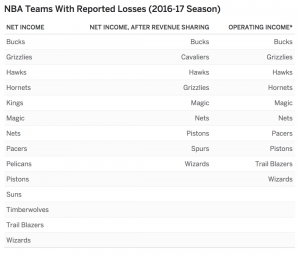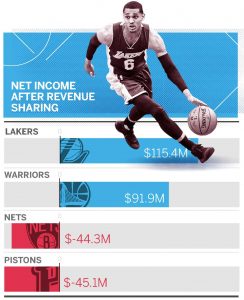
With an increase in passengers and a large number of aging aircraft in the sky, it is no wonder the competition between aircraft manufacturers is cutthroat. The most prevalent example of this is Boeing’s successful bid to slap 300% tariffs on Bombardier’s C-Series jets sold in the US.
I felt that Cris, in his blog post, presented many well thought out arguments as to why Boeing is being hypocritical in its plea for tariffs; however, I disagree on a few points. Although many people have argued that the two aircrafts do not compete with each other, I see the contrary. The Boeing 737 MAX7 flies 138-153 passengers and retails for around US$12 million more than the CS100 (and 2.5 more than the C300) [Becahi, 2017]. At similar price point and configurations that could make capacity identical, the aircrafts both serve similar route demands.

Boeing’s case against Bombardier could also have some merit. It is plausible that Bombardier, who desperately lacks major clients for the C-Series (only Air Baltic, Swiss Air, and Air Canada have placed orders), sold the plane below market value so that they could market Delta as a client. With the largest fleet in the industry and healthy revenues, Delta’s order proves that Bombardier’s jets can meet a growing demand and make economical sense in a large airline. It also increases the odds Delta’s Skyteam partners and subsidiaries will purchase the jet.
The efforts of Boeing to block Bombardier may have backfired, however, with Airbus purchasing a majority stake in the project. By moving production to Alabama, the tariff will no longer apply making the C-Series a competitive product once again. This also provides Airbus with another revenue stream without any of the research and development costs, heightening Boeing’s competition with the European manufacturer.
 The major loser in this dispute might be technological advancements. Bombardier’s C-Series is built with advanced aluminum and composite materials, an innovative engine design to reduce noise, and a state of the art flight deck. These innovations are necessary in order for Bombardier to compete with Airbus and Boeing who have the advantage of production scales, cash, and existing relationships. Bombardier needs to convince airlines that their products are so good that it is worth the additional costs of maintenance, training, and logistical expenses to switch over. Without competitors who focus primarily on innovation to gain traction, technological advancements in the industry may slow down.
The major loser in this dispute might be technological advancements. Bombardier’s C-Series is built with advanced aluminum and composite materials, an innovative engine design to reduce noise, and a state of the art flight deck. These innovations are necessary in order for Bombardier to compete with Airbus and Boeing who have the advantage of production scales, cash, and existing relationships. Bombardier needs to convince airlines that their products are so good that it is worth the additional costs of maintenance, training, and logistical expenses to switch over. Without competitors who focus primarily on innovation to gain traction, technological advancements in the industry may slow down.
Boeing may still be the King of the castle, but its grip on power is constantly being challenged. With China and Japan manufacturing their own new aircraft, it may only be a matter of time before Boeing has to put their engines into overdrive.
[Word count 449]
Citations:
Bechai, D. (2017, May 30). Boeing Hikes Jet Prices. Retrieved November 11, 2017, from https://seekingalpha.com/article/4077390-boeing-hikes-jet-prices
Images (in order of appearance)
Bombardier CS100 [Digital image]. (n.d.). Retrieved November 11, 2017, from http://www.bombardier.com/content/dam/Websites/bombardiercom/News/BA/BCA%2020151218_CS100_P1FF_HR1.jpg/_jcr_content/renditions/original
Swiss Bombardier CS100 [Digital image]. (n.d.). Retrieved November 11, 2017, from http://commercialaircraft.bombardier.com/content/dam/Websites/bombardiercom/News/BA/20150910%20BCA%20C%20Series%20Toronto%202%20HR.jpg/_jcr_content/renditions/original
CS flight deck [Digital image]. (n.d.). Retrieved November 11, 2017, from http://www.bombardier.com/content/dam/Websites/bombardiercom/Multimedia-Library/BA/Commercial-Aircraft1/CSeries/interior/CSeries_Interior_12_HR.jpg/_jcr_content/renditions/original

 I believe that the government, especially in the United States, needs to play a larger role in protecting consumers. By allowing ISPs to collect information without the consent of individuals, it disproportionately impacts consumers who are less educated, less aware, and of a lower socio-economic class. This is ignoring the mandate of the government to look out for the best interest of its citizens (who are mostly consumers) by allowing them to be exploited by corporations when previous laws existed that provided substantial protection. It also works counter-intuitive to other government programs, such as welfare, that look to aid the most vulnerable in society. With the reliance on the internet to find jobs and shop, it further perpetuates inequalities when the government is unwilling to step in for the consumer.
I believe that the government, especially in the United States, needs to play a larger role in protecting consumers. By allowing ISPs to collect information without the consent of individuals, it disproportionately impacts consumers who are less educated, less aware, and of a lower socio-economic class. This is ignoring the mandate of the government to look out for the best interest of its citizens (who are mostly consumers) by allowing them to be exploited by corporations when previous laws existed that provided substantial protection. It also works counter-intuitive to other government programs, such as welfare, that look to aid the most vulnerable in society. With the reliance on the internet to find jobs and shop, it further perpetuates inequalities when the government is unwilling to step in for the consumer. 




